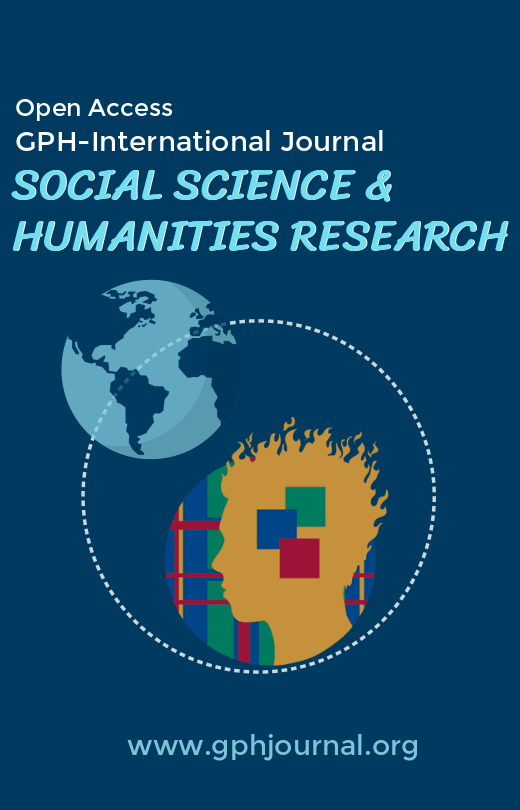Role of India in Rohingya Crisis
Abstract
Almost 7,000,00 Rohingya Muslims have left Burma's Rakhine State since late August 2017 to escape the military's extensive campaign of collective action. Mass murders, sexual violence, and unrestrained consumption are only a few of the barbaric acts committed by Burmese security forces. These crimes are against humanity. Aung Sang Suu Kyi's government received criticism from both Western and Islamic countries, while Asian giant India supported Myanmar's initiatives. Given their long-term geo-legislative problems and geo-financial elements of South and Southeast Asian objectives, India too has significant stakes in Myanmar. Myanmar is a crucial essential ally in India's efforts to strengthen trade, speculation, and other forms of financial engagement with ASEAN since it is the only ASEAN nation with whom India has both land and sea borders. India's gateway to Southeast Asia is Myanmar, which explains why India has been so tactful in its stance toward the Rohingya problem. Alongside that, the Rakhine state is a crucial connection for India's hydrocarbon and exchange objectives; India has been taking a stab at linking upper East Indian states to Sittwe port. This study further reveals how India pursues its strategic goals by delivering developmental aid in Rakhine and some little help to the displaced people in Bangladesh while concluding arrangements to effectively repatriate the couple of thousand Rohingyas from the nation.
Downloads
References
Basit, S.H., 2018. India-Myanmar Relations and the Management of Transnational Militant Threats. Journal of Strategic Security, 11(2), pp.73-92.
Karim, M.A. and Islam, F., 2018. Bangladesh-China-India-Myanmar (BCIM) Economic Corridor: Challenges and prospects.
Sahoo, N., 2017. India’s Rohingya Realpolitik.
Amin, M., ‘Nobody's Children, Owners of Nothing’: Analysing the Indian State’s Policy Response to the Rohingya Refugee Crisis.
Taneja, N., Naing, T.H., Joshi, S., Singh, T.B., Bimal, S., Garg, S., Roy, R. and Sharma, M., 2019. India-Myanmar Border Trade.
Yesmin, S., 2016. Policy towards Rohingya refugees: a comparative analysis of Bangladesh, Malaysia and Thailand. J Asiatic Society Bangladesh (Humanities), 61(1), pp.71-100.
Qayoom, A., Rohingya’s crisis: Approach adopted by Indian government to manage effectively.
Ghoshal, B., 2017. India's responses to the complex Rohingya crisis in Myanmar.
Idris, I., 2017. Rohingya refugee crisis: impact on Bangladeshi politics.
Gottschlich, P., 2017. The India-Myanmar Relationship: New Directions after a Change of Governments?. International Quarterly for Asian Studies, 48(3-4), pp.171-202.
László, E.L. and Schmidt, J.D., 2018. The impact of refugees on host countries: A case study of Bangladesh under the Rohingya influx (Doctoral dissertation, Master’s Thesis. Alborg University, Denmark. Available at: https://projekter. aau. dk/projekter/files/281553531/Thesis. pdf. [Accessed 22 October 2019]).
Joint Response Plan for Rohingya Humanitarian Crisis (2019), available atwww.humanitarianresponse.info/en/operations/bangladesh
Imam, S.H., 2017. Closer China-Bangladesh Ties shouldn’t Worry India. The Daily Star, December, 1.
Randhawa, S.H., 2017. Book review: The Rohingyas: Inside Myanmar's hidden genocide. Genocide Studies and Prevention: An International Journal, 11(1), pp.119-121.
Shafiqullah, A.K.M., 2013. Deep sea port in Sonadia: A unique opportunity for Bangladesh. The Daily Star, March, 20.
Copyright (c) 2022 Fatema Akther

This work is licensed under a Creative Commons Attribution-NonCommercial-NoDerivatives 4.0 International License.
Author(s) and co-author(s) jointly and severally represent and warrant that the Article is original with the author(s) and does not infringe any copyright or violate any other right of any third parties, and that the Article has not been published elsewhere. Author(s) agree to the terms that the GPH Journal will have the full right to remove the published article on any misconduct found in the published article.





























